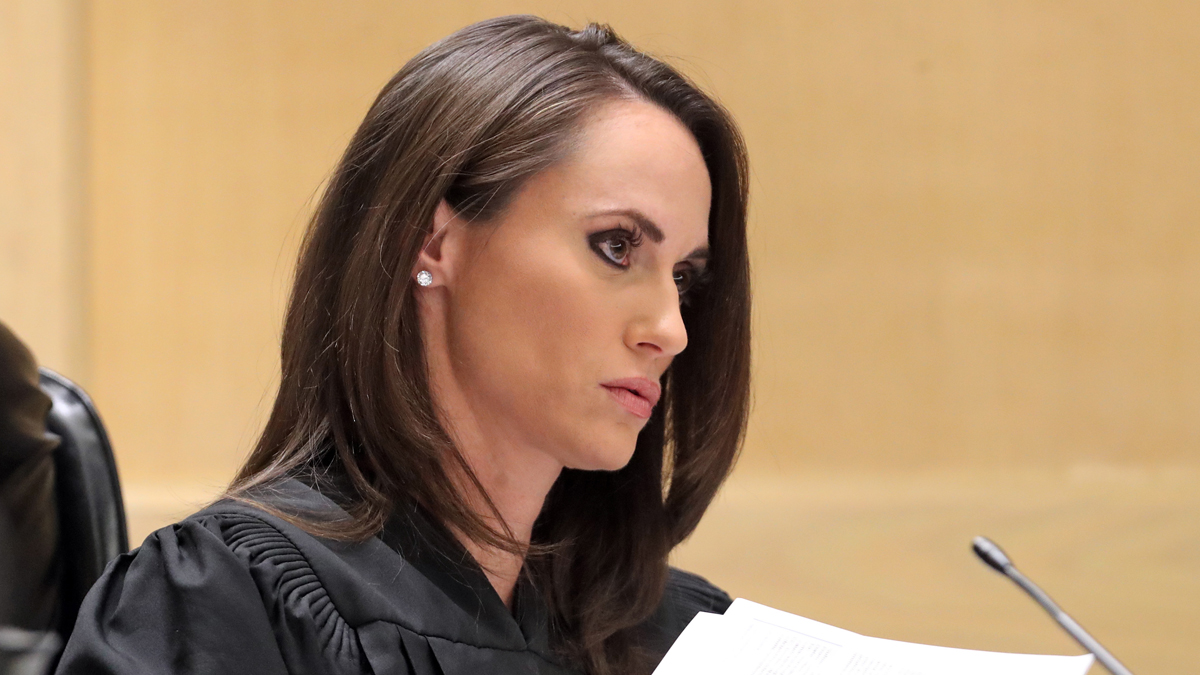More than four years after the mass shooting at Marjory Stoneman Douglas High School in Parkland, the procedure to determine whether the gunman will receive the death penalty or life in prison is set to begin.
Monday's beginning of the penalty phase at the Broward County courthouse will start the process of finding the 12 jurors who could recommend Nikolas Cruz be given a death sentence, which some surviving loved ones say means justice.
MORE ON MSD SHOOTING
No jurors had to be called to determine if the now 23-year-old Cruz killed 14 students and 3 staff members at Stoneman Douglas on Feb. 14, 2018. Six months ago, he entered guilty pleas to 17 counts of first-degree murder.
Get South Florida local news, weather forecasts and entertainment stories to your inbox. Sign up for NBC South Florida newsletters.
But on Monday, Judge Elizabeth Scherer will begin looking for 12 Broward residents who will give her their recommendation if Cruz should get life without parole or the death penalty. She’s summoned hundreds of Broward residents to court, a massive jury pool.
"There’s been a lot of planning going on both sides here, prosecution and defense,” said attorney Phil Reizenstein, an expert in death penalty cases.
Making this case different is the gigantic jury pool that's needed since everyone knows about the tragedy. The size also reduces the chances of the case having to move to another county in the state.
When it comes to the state attorney and the defense team, Reizenstein said they'll be trying to figure out one main issue.
“They're really asking themselves a very simple question: Is there a particular type of juror we think is going to be more open to the arguments we are going to make?" he said.
Jurors will be asked if they can set actually aside what they’ve seen in the media, and whether they could impose the death penalty.
"I think its a fair guess that the prosecution is going to be very happy with any juror who is a parent because I am a parent and I don’t know how you sit in judgement on this case and don’t put yourself in the shoes of these parents who’ve lost children," Reizenstein said.
Even though Cruz entered the guilty pleas, which normally results in those convicted avoiding death, the Broward State Attorney vowed to never take the death penalty off the table.
That means prosecutors now will have to prove at least one of what are called "aggravating factors," the most obvious in the tragedy being that multiple people were killed.
"Those are specific sets of facts that the Florida Legislature has said if proven by the prosecution will then allow them to vote for death,” Reizenstein said. "Some of these individuals were shot after witnessing the shots and the murders of others."
Reizenstein expects there to be some extremely difficult moments ahead.
"Those types of aggravators when they come up in any death penalty case are very, very difficult," he said. "They have a tremendous emotional impact on jurors and I have never seen a case that has more of that kind of emotional evidence than this case."
In an effort to save his life, Reizenstein believes Cruz’s lawyers are expected to present evidence showing a long history of mental health problems and medical documentation to support it, like brain scans.
"On the defense side there are mitigators and the door is much more wide open. It’s pretty much anything the defense wants to show us and there are some that are very obvious, from difficult childhood upbringings to trauma to illness to brain illness, and I think that’s clearly a part of what's going on here,” he said.
At the end of the day, for Cruz to get the death penalty all of the jurors will have to agree and find that at least one of the aggravating factors applies, then make a recommendation to Judge Scherer that he should be executed.
Then it's up to her to impose that sentence or Judge Scherer can find that the circumstances the defense has presented outweigh that and he’s given a life sentence without parole.
Either way it's is a long process and the fall may be upon us when a decision is made. Monday is just the beginning.



